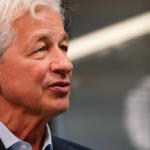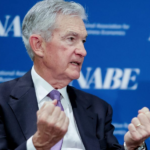A lot is riding on the AI boom, and it isn’t just the stock market surge. AI is being touted as an elixir for a number of serious economic challenges, according to Ruchir Sharma, chair of Rockefeller International.
“Yet increasingly the response to this risk, too, is a shrug. AI is going to make human labor less necessary anyway,” Sharma quipped.
Meanwhile, the U.S. debt-to-GDP ratio is already at 100% and expected to continue galloping higher, topping the World War II–era record high in the coming years.
But again, AI could come to the rescue by propelling economic growth enough to stabilize the debt. The global bond market even appears to be pricing in that scenario, Sharma said, pointing to surging yields for Japan, France, and the U.K., even though they have smaller budget deficits than the U.S. does.
“The main reason AI is regarded as a magic fix for so many different threats is that it is expected to deliver a significant boost to productivity growth, especially in the U.S.,” he added.
In addition to the workforce and debt woes, AI could even ease inflation risks, including tariff-driven pressure, by enabling companies to raise wages but still keep prices steady, Sharma said.
And the U.S. has in fact enjoyed more productivity growth in recent years than other developed economies have, stoking further hype among investors that the lead will widen.
America’s AI narrative has helped global investors overcome the shock of President Donald Trump’s trade war and “Liberation Day” tariffs, which triggered a sudden exodus out of U.S. markets. But the money quickly came back, and Sharma said foreigners plowed $290 billion into U.S. stocks in the second quarter and now own 30% of the market.
“In a way, then, America has become one big bet on AI,” he said.
Excluding AI-related stocks, European markets have actually been beating the U.S. this decade, and the outperformance is spreading to other sectors.
“What that suggests is that AI better deliver for the U.S., or its economy and markets will lose the one leg they are now standing on,” Sharma warned.
For now, Wall Street seems happy to ride the wave. On Monday, OpenAI’s announcement that it’s taking a stake in chipmaker AMD sparked another stock market rally.









